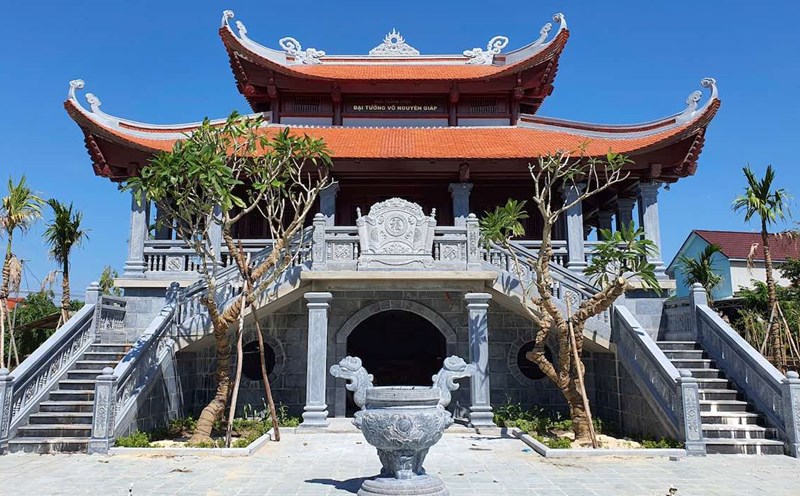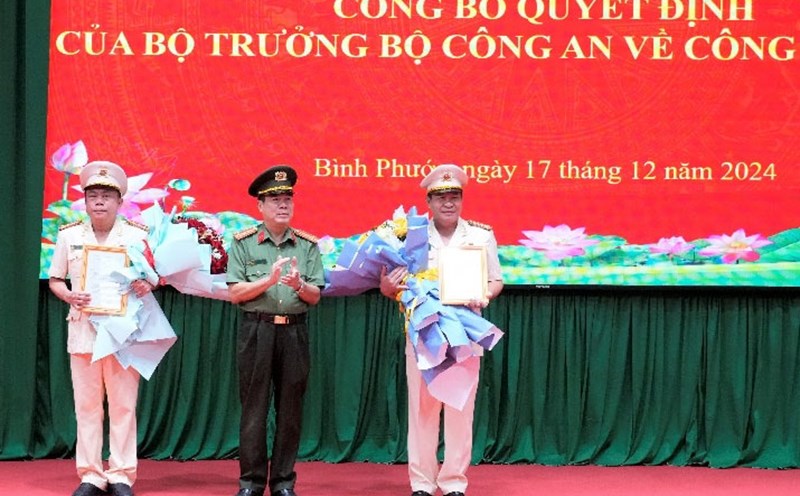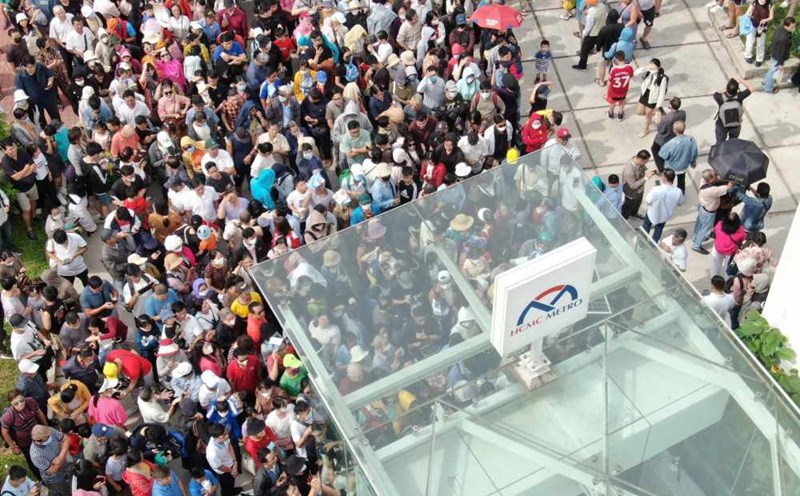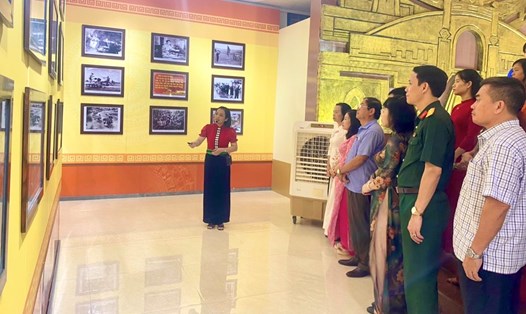Generals of his time around the world highly appreciated his military ability, thinking and strategic vision. Not only was he a talented general with extensive battle experience, General Vo Nguyen Giap was also a history teacher who inspired patriotism in his generation of students.
Teacher Vo Nguyen Giap
General Vo Nguyen Giap, whose birth name was Vo Giap, was born in An Xa village, Loc Thuy commune, Le Thuy district, Quang Binh province. He grew up in a family with a tradition of Confucianism and deep patriotism. His father, Vo Quang Nghiem, was a Confucian scholar, and his mother was Nguyen Thi Kien.
From his youth, while still in school, he was aware of the situation of the country, fostered a spirit of patriotism and actively participated in student movements in Hue as well as other revolutionary activities. He studied at the National School in Hue, then moved to Hanoi to study at the Albert Sarraut School. In 1937, he graduated with a bachelor's degree in Law.
In September 1935, Thang Long Private School opened its first course, with the late Professor Hoang Minh Giam as its director. Here, teacher Vo Nguyen Giap began his teaching career, taking charge of French, Geography and History. In particular, he was in charge of History for the baccalaureate level. Through his lively lectures, teacher Vo Nguyen Giap aroused patriotism and revolutionary spirit in his students.
Although his time on the podium was not long (1936 - 1939), teacher Vo Nguyen Giap left a deep impression on generations of students. Many of his students later became famous revolutionaries and military generals such as: Le Quang Dao, Nguyen Lam, Pham Hong Cu, Hoang Minh Thao.
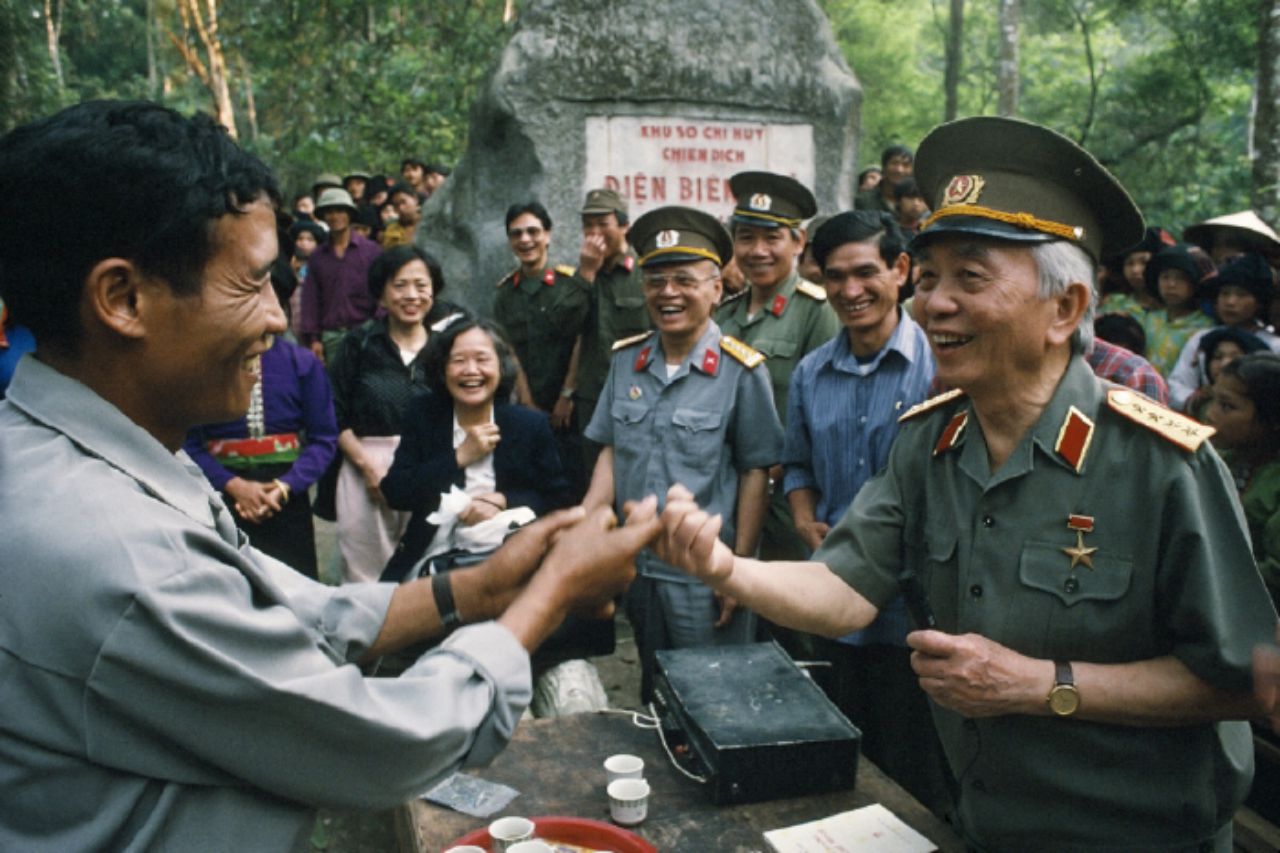
The eldest brother of the Vietnam People's Army
In 1940, General Vo Nguyen Giap left the lecture platform to devote himself completely to the revolutionary path. In June 1940, he was admitted to the Indochinese Communist Party and sent to China to meet leader Nguyen Ai Quoc. He then returned to Vietnam in 1941 to prepare for the armed uprising, taking charge of the Southern Advancement Committee in 1942.
In the context of the country losing its independence and freedom, in December 1944, General Vo Nguyen Giap was assigned by the Party Central Committee and leader Ho Chi Minh to organize the armed forces. On December 22, 1944, in Tran Hung Dao forest (Cao Bang), the Vietnam Propaganda Liberation Army was established with 34 officers and soldiers under the command of comrade Vo Nguyen Giap.
Immediately after its establishment, this army won resounding victories at Phai Khat and Na Ngan, creating revolutionary momentum for the entire army and people. Under the command of General Vo Nguyen Giap, the armed forces played a pivotal role in the August Revolution in 1945, contributing to the victory and birth of the Democratic Republic of Vietnam.
After the August Revolution, the country entered a long-term resistance war against French colonialism. General Vo Nguyen Giap advised on the building of armed forces with three types of troops: main force, local force and militia and guerrillas. The armed forces were expanded in quantity, quality and organizational scale, while the level and fighting ability of revolutionary soldiers were constantly improved. The General directed the development of guerrilla warfare, combined with conventional warfare, creating resounding victories such as the Viet Bac - Thu Dong campaign (1947).
Immediately after the first campaign victory, in 1948, President Ho Chi Minh and the Party Central Committee established the General Command of the Vietnam National Army. Notably, on January 20, 1948, President Ho Chi Minh signed a decree to confer military ranks on a number of military officers and commanders. Among the military command team, 11 comrades were conferred the rank of general, especially comrade Vo Nguyen Giap - the first person to be conferred the rank of General without going through intermediate levels, when he was only 37 years old.
The "teacher" of military masters
Starting out as a history teacher, never having attended any professional military school, General Vo Nguyen Giap became a military genius, defeating a series of generals of French colonialism and American imperialism.
Under the command of the General, the Vietnamese army continuously won victories in major campaigns such as: Autumn-Winter Border (1950), Hoa Binh (1951 - 1952), Northwest (1952), Upper Laos (1953), Winter-Spring (1953 - 1954), with the peak being the Dien Bien Phu campaign.
At Dien Bien Phu, the General's historic decision to switch from the "fight fast, win fast" tactic to "fight steadily, advance steadily" completely defeated the French colonialists, forcing them to sign the Geneva Agreement, ending the war and restoring peace in Indochina.
During the resistance war against the US, General Vo Nguyen Giap continued to prove his talent with resounding victories at Binh Gia (1964 - 1965), Dong Xoai (1965), Road 9 - Khe Sanh (1968), Road 9 - Southern Laos (1971), Tri Thien (1972), and especially the historic Ho Chi Minh campaign in 1975, completely liberating the South and unifying the country.
Scholars, researchers and military experts around the world consider General Vo Nguyen Giap to be one of the 10 greatest military strategists of all time, a famous general of the 20th century. He is not only the pride of the Vietnamese people but also a symbol of will and intelligence in world military history.

